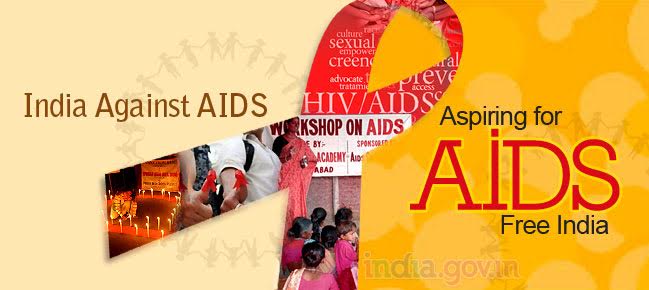
Blood donation in Kolkata red-light districts triggers row
Many were shocked when Kolkata-based Bengali daily Ananda Bazar Patrika first reported that blood donation camps were organized first in Sonagachi, one of Asia's largest brothel-based sex workers' districts, and then in Bowbazar red light area.
Reports said on last Saturday (July 11) and Thursday (July 16) - in a span of just five days- two blood donation camps were organized with the ruling party leaders being present on both occasions. Trinamool Congress (TMC) ministers, MP and MLAs were present as the chief guests.
Sasthya Samiti, a club in Kolkata's Sonagachi area, hosted a blood donation camp on July 11 where TMC ministers Sashi Panja and Sadhan Pandey were present.
Representatives from the Central Blood Bank went there to collect bloods. Reports said though after reaching the area they objected to take bloods under heavy pressure, they had to go ahead with the collection from the donors there.
According to the National Aids Control Organization (NACO)'s guidelines, nobody can organize blood donation camp inside and within a radius of 2 km of a red light district.
One blood collector from the Maniktala Central Blood Bank said donors included sex workers and drug addicts, who are at high risk for contracting HIV infection besides other sexually transmitted diseases.
"Both blood of drug addicts [who share syringes] and sex workers are very high risk groups," one collector told IBNS.
Director of Maniktala Central Blood Bank Kumaresh Adhikary when contacted, told IBNS: "I know it was improper, but we had to collect the bloods from that area. I will say nothing more in this matter."
Asked about her presence in such a controversial blood donation camp at a high risk zone, TMC minister Sashi Panja told IBNS, "After receiving bloods from the donors, those are tested in the labs before giving to the recipients. If any infection is detected in the blood, it will be thrown away immediately. Don't worry."
Another minister who was present there, Sadhan Pandey told IBNS: "Organizing blood donation camp is a good practice, I appreciate it. All blood samples will be tested. Doctors will never inject HIV positive blood to the patients."
While the Sonagachi blood camp was creating controversy after the Bengali daily reported it, another camp followed in a sex workers' district in Bowbazar in north Kolkata.
Yatrik Club of Bowbazar's Harkata Lane (another hub of brothel based sex workers' district) organized a blood donation camp at the crossing point of Nabinchand Baral Street and Premchand Baral Street (known as Harkata Lane) on Thursday where TMC MP Sudip Banerjee, his wife TMC MLA Nayna Banerjee and few TMC councilors were reportedly present.
Representatives from Medical College, Kolkata went there to collect bloods.
TMC MP Sudip Banerjee told IBNS: "Once I was central's minister of state for health. I know the rules. This camp was organized following NACO's guidelines. And for your kind information, the camp where I went, was organized at 10, Nabinchand Baral Street, not at Harkata Lane."
"Donors were not supposed to know about risks and all. Then why did the doctors collect those!" Sudip Banerjee said.
One blood-collector told IBNS, "I know that the camp should not be organized there. But, unfortunately we had to collect bloods from such high-risk area."
The director of Medical College, Kolkata's blood bank Biswajit Halder, who it was reported was on duty, however told IBNS, "I was on leave on Thursday. So, I don't know about this matter, can't comment on it."
The members of the these clubs which organized the camps refused to speak.
A representative of Durbar, India's largest sex workers' organisation working on their welfare, told IBNS, "We organize several cultural programmes and educational initiatives inside our areas. But we never organized blood donation camp there. Because, infected blood will be dangerous for the blood-recipients' life."
According to reports, 72 and 150 unit bloods were collected from these two blood donation camps at Sonagachi and Bowbazar areas respectively.
Though ministers said that infected blood samples would be thrown away, a doctor of Kolkata Medical College and Hospital told IBNS: "If an HIV blood sample is under 'window period', then it can never be detected in lab tests."
According to the New York State Department of Health AIDS Institute, the 'Window Period' is the time after the HIV infection that it takes for the virus to become detectable by HIV diagnostic tests. During the window period, an interval of three weeks to six months between the time of HIV infection, a person can be infected with HIV but have a negative HIV test.
Blood-collector doctors have also admitted that.
When asked West Bengal health secretary Malay Dey told IBNS, "I don't have clear knowledge about those blood donation camps. After knowing, I will react on it."
According to sources, some other clubs in Kolkata's similar high risk zones like Kalighat, Kidderpore, etc. have plans to organize such blood donation camps.
Thalassemia affected children who need frequent blood transfusion are in danger of contracting HIV from infected blood.
Support Our Journalism
We cannot do without you.. your contribution supports unbiased journalism
IBNS is not driven by any ism- not wokeism, not racism, not skewed secularism, not hyper right-wing or left liberal ideals, nor by any hardline religious beliefs or hyper nationalism. We want to serve you good old objective news, as they are. We do not judge or preach. We let people decide for themselves. We only try to present factual and well-sourced news.







